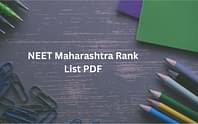Do you want to ace your upcoming LSAT 2024 exam? All law aspirants must check the top 10 preparation tips, section-wise preparation tips, syllabus, exam pattern and more for the LSAT India 2024.

The Law School Admission Council (LSAC) in India administers the Law School Admission Test (LSAT) regularly. This law entrance exam is designed to evaluate candidates' reasoning and analytical capabilities. The
LSAT India
2024 question paper is segmented into four sections: Analytical Reasoning, Reading Comprehension, and Logical Reasoning 1 & 2. Aspirants should commence their LSAT India 2024 preparation only after conducting comprehensive research into the exam's structure, syllabus, and additional particulars. Achieving a favorable percentile on the LSAT India 2024 is crucial for securing admission to a preferred institution.
When
preparing for the LSAT India
, candidates must exhibit adeptness in reading and critical thinking. The skills requisite for succeeding in LSAT India 2024 can be cultivated solely through consistent practice. It's noteworthy that LSAT India 2024 preparation diverges from that of most other
state-level law entrance exams
due to its rigorous assessment of reading, analytical, and critical thinking proficiencies. In its resemblance to the
Common Law Admission Test (CLAT)
, LSAT India relies on reading and critical thinking aptitudes and entails intricate passages. Consequently, aspiring law students can effectively prepare for both CLAT and LSAT India, culminating in commendable outcomes.
LSAT India Syllabus 2024
In order to create a well-strategized preparation plan and subsequently perform excellently in the LSAT examination, candidates must thoroughly understand the LSAT India syllabus . They must also check and have a good understanding of how much weightage each section carries marks-wise, the total number of questions from each topic, the time allotted for each section, etc. The section-wise syllabus and details for the LSAT exam are tabulated below:
Category | Details | Total No. of Questions | Sectional Time Allotted |
|---|---|---|---|
Analytical Reasoning | The questions from this section assess the candidates' logical thinking abilities. | 23 | 35 minutes |
Logical Reasoning - 1 | This section assesses candidates' ability to comprehend and analyze the arguments presented in the passages or questions. | 22 | 35 minutes |
Logical Reasoning - 2 | This section assesses students' ability to comprehend and analyze the arguments presented in the passages. | 23 | 35 minutes |
Reading Comprehension | This section assesses students' competence to read and comprehend long and difficult passages. | 24 | 35 minutes |
LSAT India Exam Pattern 2024
It is crucial for all the candidates appearing for the LSAT India exam to thoroughly understand the exam pattern of LSAT in order to devise a better preparation strategy, do enough revisions, and practice mock papers and previous year's question papers to fare well in the examination and get admission to a reputed law college. Below you will find the tabulated data that will help you understand the LSAT India exam pattern:
LSAT India Test Features | Exam Pattern Details |
|---|---|
Exam Mode | Online |
Exam Duration | 2 hours and 20 minutes |
Time for each Section | 35 minutes |
Test Language | Only English |
Type of Questions | Objective-type questions |
Sections | Four sections based on three subjects |
Sectional Weightage |
|
Total Questions | 92 |
Total Marks | Test results will be supplied as a scaled score ranging from 420 to 480 |
Also Read: What is a Good LSAT India 2024 Score? - Overall & Section Wise
LSAT India 2024 Section-wise Preparation Tips
Candidates can review the following LSAT preparation strategies for each topic of the examination:
English Comprehension Section
The section entails 24 questions that must be answered in 35 minutes. While there is no need to rush to take the exam, candidates should improve their reading skills. Here are some pointers to help you prepare for the section:
- To improve your reading speed, read books, novels, and blogs.
- Spend time learning how to correctly interpret sentences.
- Enhance your vocabulary through podcasts, videos, and even word games.
- Shorten the time you spend answering passage-based questions.
The exam will consist of 4-5 comprehension readings followed by 5-8 objective questions. The reading comprehension passages for the LSAT India will be selected from disciplines such as social sciences, humanities, legal issues, biology, and physical sciences. Candidates will not, however, be required to have prior knowledge of these courses.
Candidates would be asked to identify the major subject of the paragraph, as well as the meaning or purpose of specific words, in this part. There will also be questions based on the facts in the passage that will test the candidate's deductive knowledge.
Analytical Reasoning Section
The section will consist of 23 questions to be answered in 35 minutes. As a result, to attempt the section, candidates need to increase their speed and accuracy. The questions will be based on charts, graphs, and data, and applicants will need to analyze them to get the proper answers.
- Candidates should practice mental calculations to be rapid in data analysis.
- Before trying a question, learn to determine what is asked.
- Continue to practice the mock test papers.
- This section contains questions about statements, rules, and complex relationships. Candidates must study the content and derive logical inferences from the problems.
Cultivating reading habits and analyzing the content would be part of the LSAT India preparation for analytical reasoning. Candidates must pay close attention to words like "only," "exactly," "never," "always," "must be," "cannot be," and so on. These words determine the relationships and can completely alter the meaning of a statement.
One important aspect of analytical thinking is that questions can be independent. As a result, candidates must answer each question from the passage without making any assumptions.
Logical Reasoning Section
There will be two portions of Logical Reasoning i.e. 1 and 2, totalling 45 questions out of a total of 92 questions. As a result, it is the most important component of the LSAT India exam. Candidates should prepare the following section:
- Before drawing judgments, understand the meaning of the question.
- Clear concepts and acquire strategies for answering problems based on patterns, arrangements, and sequencing
- Improve your vocabulary to deal with wordy sentences.
The arguments will be presented in brief paragraphs drawn from a range of sources, including news editorials, letters, and comments. Candidates will be asked to answer questions about recognizing assumptions, analyzing arguments, making judgments from provided arguments, spotting errors and misrepresentations, applying principles, and so on. The following pointers may assist candidates in answering questions from LSAT India's logical reasoning section.
- Correctly read the passage and question, and comprehend the meaning.
- Choose your response based on the information in the passage, even if it is factually incorrect or you disagree with the solution.
- There will be no twists or subtexts in the questions, so answer just within the specified framework.
Top 10 Preparation Tips to Qualify LSAT India 2024
To do well in the LSAT India 2024, focus on improving your reading and analytical skills. Here are ten helpful tips to guide your preparation:
1. Plan Your Study Time: Create a well-organized study plan that covers the entire syllabus. Consistency is key, allowing for thorough coverage, multiple revisions, and timely progress.
2. Manage Your Time Effectively: Practice with mock papers and past questions to enhance time management skills. Diligent practice helps in quick comprehension and solving passage-based questions.
3. Improve Reading Speed: The LSAT India test has diverse segments, so it's crucial to read quickly and respond to passage-based questions promptly. Regularly reading newspapers, magazines, and legal articles can refine your reading skills.
4. Use Quality LSAT India Prep Resources: Utilize LSAC's study materials and solve official LSAT India question papers. These resources provide extensive coverage, helping you respond faster and offering feedback on accuracy.
5. Develop Analytical Skills: Since LSAT India emphasizes analytical segments, work on fostering critical and analytical thinking capabilities. Reading articles and editorials from different perspectives can help cultivate comprehensive conclusions.
6. Think Before Answering: Instead of impulsively tackling questions, carefully read passages before answering. This method aids logical deduction and accurate selection of responses.
7. Avoid Personal Opinions: LSAT India questions may ask for opinions, but it's essential to rely solely on passage content for answers. Avoid incorporating external viewpoints, even if they seem familiar.
8. Use Underlining and Highlighting: When reading texts, underline relevant information. This technique streamlines answering questions, making the process more efficient and aiding in time management.
9. Review the Entire Syllabus: Before the exam, thoroughly review all subjects in the LSAT India 2024 syllabus. Starting this revision at least two weeks before the exam helps refresh knowledge, memory, and comprehension.
10. Start with Your Strongest Section: Begin with the section you are most confident in. This approach speeds up tackling that section, allowing you to conserve time and energy for segments that require deeper analysis and thought.
Also Read: LSAT India Scholarships: Highlights, Eligibility, Guidelines
Stay tuned to CollegeDekho for more updates on law exams and admissions in India. If you have any doubts or queries, send them to us through the Q&A Zone or fill out the Common Application Form (CAF) .
Are you feeling lost and unsure about what career path to take after completing 12th standard?
Say goodbye to confusion and hello to a bright future!

FAQs
Not at all, 120 is not at all a good score for LSAT India 2024. It is considered as 0% as it comes between the range of 120 to 180.
Yes, 500 is considered to be a very good score for LSAT India 2024 exam.
The Analytical Reasoning section is considered to be the most challenging part of the LSAT India 2024 exam.
Yes, LSAT India 2024 is tough. The difficulty level of the exam is on the higher side.
No, it is not easy to crack, but it is also not impossible to crack LSAT India 2024, as with proper hard work and consistent effort, one can easily qualify the LSAT India 2024 exam.
The LSAT India 2024 exam offers admission to law courses.
Yes, the application process for the LSAT India 2024 exam has started. It was started on 20 August 2023 and the last date to fill the application form is 02 May 2023.
There are four sections in the LSAT India, 2024 syllabus, which are reading comprehension, analytical reasoning, logical reasoning 1 and logical reasoning 2.
The duration of LSAT India 2024 exam is 2 hours and 20 minutes.
The LSAT India 2024 exam would be conducted between 20 January 2024 to 19 May 2024.
Was this article helpful?




















Similar Articles
CLAT Second Selection Merit List 2025: NLU-wise Allotment List PDF, Cutoff
What is a Good Score in AP LAWCET 2025?
CLAT First Selection Merit List 2025: NLU-wise Allotment List PDF, Cutoff
CLAT Round 1 Cutoff 2025, 2024, 2023, 2022, 2021, 2020, 2019 - Check Opening and Closing Ranks for General, OBC, SC, ST
CLAT 2025 Seats for ST Category: Total No. of Seats with Fees
CLAT 2025 Seats for OBC Category: Total No. of Seats with Fees